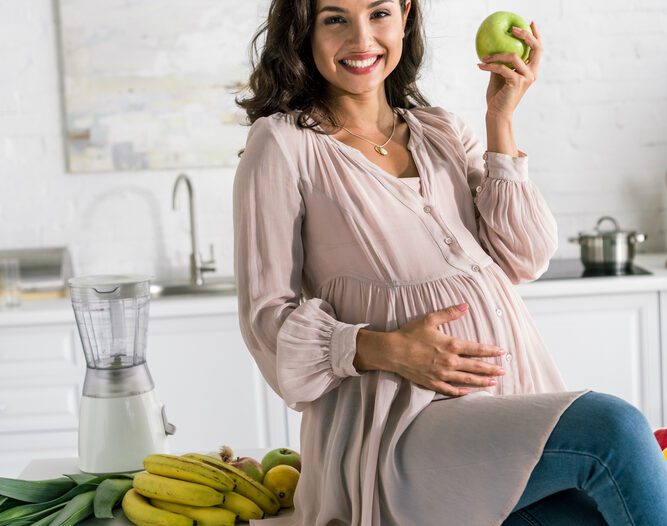
As fertility specialists, we spend a lot of time speaking to patients about what foods to eat and what not to eat to prepare their bodies for pregnancy. Most of this advice is tailored to healthy nutrition, weight management, and avoiding chemicals or toxins that compromise hormone balance and fertility. However, once you get pregnant, some of those rules change.
What NOT to Eat After You’re Pregnant
Once you find out you’re pregnant, you’ll work closely with your fertility specialist as they onboard you to your obstetrician. In most cases, healthy nutrition matters more than ever during the first trimester of pregnancy. In addition to focusing on adequate pregnancy nutrition, you want to avoid consuming foods that threaten you or your baby.
All of the changes in the body once you’re pregnant, including changes to the immune system, make pregnant women more prone to infections from some of the foodborne bacteria that don’t cause problems in healthy adults otherwise.
Here are a few basic rules on what not to eat, or foods to avoid, during pregnancy.
1. Never eat raw meat or undercooked eggs
A straightforward rule to follow is never to eat raw meat. In truth, eating raw meat is always a gamble whether you’re pregnant or not. However, when you’re pregnant, you and your baby have a greater risk of contracting parasites or infections related to bacteria harbored in raw meat.
For the next nine months, skip your favorite sushi and sashimi if it involves raw fish opting for cooked options instead. Instead, focus on beef cooked medium to medium-well or well-done to err on the safe side. Raw or undercooked eggs are also an issue, especially from a factory farm.
Click Here to access the FDA’s guide for ideal temperatures for meat, poultry, and seafood while you’re pregnant.
2. Skip raw dairy products (including some popular cheeses)
Dairy products are a great source of protein and calcium. However, raw dairy may contain harmful bacteria, including some of the best soft and stinky cheeses. When it’s just you, these bacteria are quickly handled by your gut and immune system. Once you’re pregnant, they can cross the placental barrier and negatively impact your baby.
While raw milk, yogurt, and other dairy products typically have “raw” on their label, some of your favorite cheeses may put you at risk. Sticking to hard, pasteurized cheeses is ideal, avoiding any of the following unless their brand advertises they were made from pasteurized milk:
- Brie
- Feta
- Camembert
- Roquefort
- Queso blanco
- Queso fresco
3. Avoid unpasteurized juices
Similarly, only drink fruit juices that have “pasteurized” on their label. Unpasteurized juice products also carry the same types of bacteria as unpasteurized dairy products and are known to cause food-borne illnesses that affect babies and their mothers.
4. Boil deli meats (and hot dogs)
A quick sandwich is a go-to lunch or late-night snack option. Unfortunately, processed deli meats often test positive for a bacteria called listeria. Avoid ordering deli sandwiches or hot dogs from restaurants or food sources where you can’t control the meat’s temperature.
Instead, buy high-quality deli meats, sausages, or hot dogs from your local deli or butcher counter. Then, before eating them, boil them in a sealed package until they reach the temperature of 165°.
5. Give up licking the batter spoon and bowl (for now)
One of the best things about being an adult is getting the batter spoon and bowl all to yourself when baking your favorite desserts. Unfortunately, most batters and raw dough include raw eggs. Keep that in mind. While you’re pregnant, fork over the batter spoon and bowl to your next favorite family member – with a warning that you’ll reclaim those privileges as soon as the baby is born.
Contact RRC With Any Early-Pregnancy & Lifestyle Questions
We know first-hand how hard you worked to get pregnant with your sweet baby. So, we also understand how important it is to prioritize your health and well-being through a healthy diet and lifestyle choices.
The team at the Reproductive Resource Center is here to support you through any early pregnancy questions you may have. And we don’t have to remind you that if the foods to avoid during pregnancy are some of your favorites, it’s worth the priceless experience of a healthy pregnancy and baby.
 Patient Portal
Patient Portal